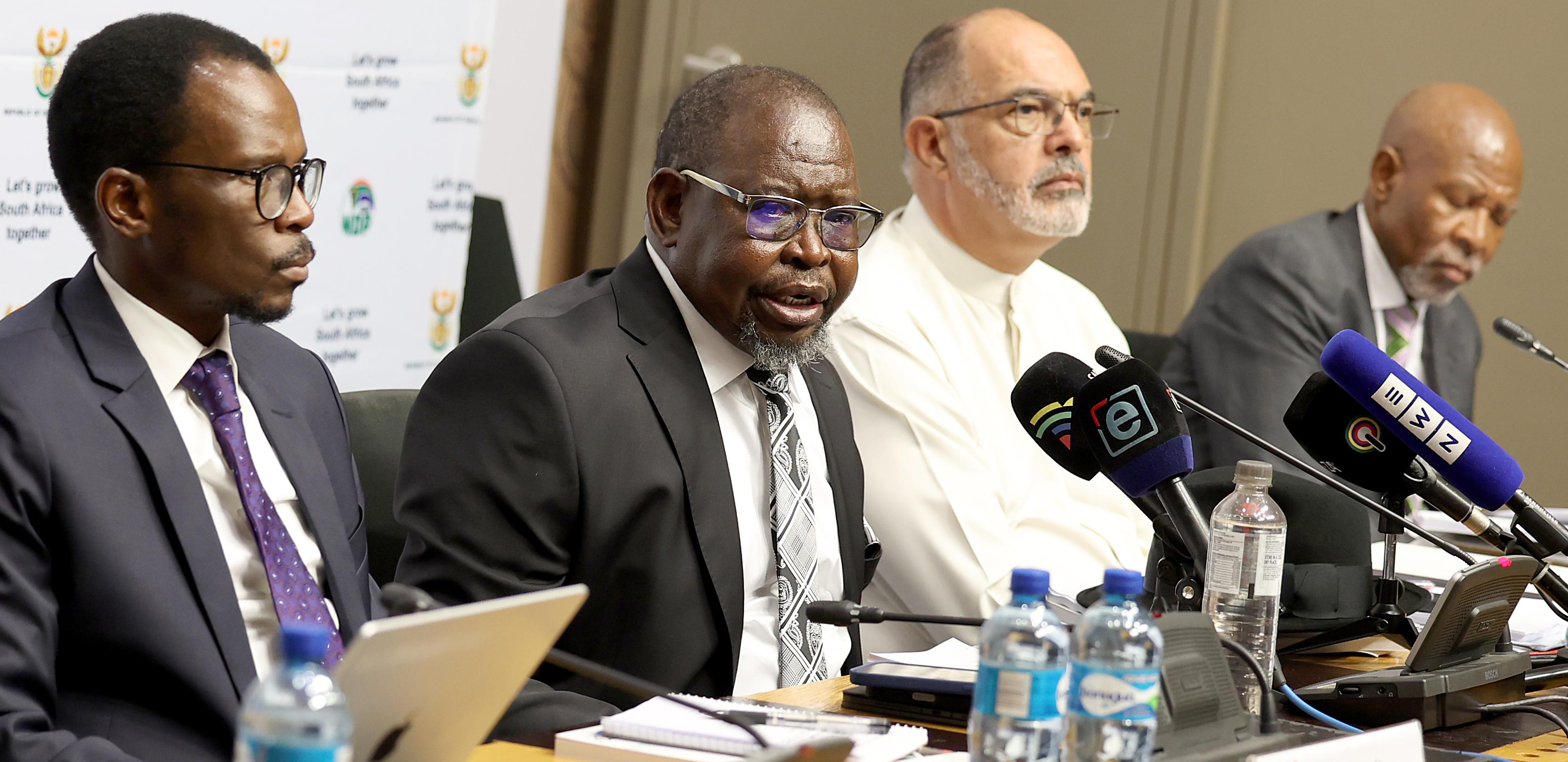South Africa’s financial markets have acted in rather curious ways the past couple of days. In the wake of the non-Budget fiasco, they have not had a complete and utter meltdown.
This is what one might reasonably have expected given the shocking and unprecedented nature of the events that unfolded on Wednesday, 19 February 2025, when the plug was jarringly pulled on the finance minister’s annual Budget Speech because of a massive spat over a proposed 2 percentage point hike in VAT that would have taken it to 17%.
It is the case that the rand lost some ground on Wednesday, sliding to 18.57/dollar at one point in the afternoon from 18.35/dollar in the morning.
But what is interesting to note is that its low was an extension of gains triggered by news of an emergency Cabinet meeting called by South African President Cyril Ramaphosa just before the scheduled presentation to Parliament at 2pm in a last-minute bid to get the Democratic Alliance (DA) on board.
When the tabling of the Budget was officially postponed, the rand slipped a bit more. But it did not go over a cliff and as of mid-afternoon on Thursday it was fetching about 18.43/dollar — about 10 cents stronger on its opening levels.
This is surely revealing as the rand is known for its volatility, which is partly a reflection of it being one of the most liquid and highly traded currencies in the emerging market category.
Lacking firepower
The South African Reserve Bank lacks the firepower to decisively intervene in the markets to shore up the rand, making it an open target for currency traders who have a shark-like sense for smelling blood in the water.
Domestic bonds took a bit more of a drubbing, but given the frankly crazy circumstances, the reaction was fairly muted.
The yield on the 10-year government bond had spiked by around 30 basis points as of mid-afternoon on Thursday compared with its levels early on Wednesday, taking it to 10.865%, according to data compiled by Trading Economics.
That is a significant move — bonds, yields and prices have an inverse relationship, so it’s in the wrong direction — but its yield in early June last year was even higher just before the formation of the Government of National Unity (GNU).
This raises an obvious question: Why is the rand not sinking into oblivion and dragging South African government bonds down with it to the bottom of the sea?
One big factor I assume is that the markets have not been unnerved by (and even welcome much of) what was contained in the Budget, which is well and truly in the public domain despite Treasury’s farcical and ultimately doomed attempt to keep it under wraps after providing all of the documents and the speech to dozens of journalists and economists in the traditional lock-up.
We know, for example, that Treasury is aiming for public debt levels to peak in the current 2025/26 financial year at 76.1% of gross domestic product (GDP) and then slowly ebb to 66.8% by 2032/33.
Consolidated government spending is set to rise by an annual average of 5.8%, from R2.4-trillion in 2024/25 to R2.84-trillion in 2027/28. That’s not great — actual cuts in overall spending would be toasted by the markets — but it is also not like the government is going to keep spending public money like a drunken sailor.
As my colleague Ferial Haffajee noted, the Budget was sensible, with stimulus measures for infrastructure and plans for more public-private partnerships.
Dramatic changes unlikely
The next version of the Budget that will finally — hopefully — be presented on Wednesday, 12 March, is unlikely to introduce any dramatic changes to the one that was supposed to be unveiled this Wednesday.
This, in some ways, provides the markets with an almost unprecedented sense of certainty before the Budget Speech — in effect, 95% of its content will have been digested weeks beforehand.
But the uncertainty lies in the stability of the GNU and what to do about VAT.
There are mounting levels of geopolitical and global economic uncertainty at the moment, with South Africa in the firing line of US President Donald Trump, whose looming trade wars threaten to trigger a worldwide wave of inflation and calamity. And that’s just the tip of the Trumpian iceberg.
The rand’s relative stability last year was largely attributable to the formation of the GNU, which greatly reduced South Africa’s political risk profile in the eyes of investors.
Now this scuffle over VAT casts a new level of political domestic uncertainty over South Africa and, in some ways, it seems pointless.
The tax policy proposals in the Budget — in effect the VAT hike — are designed to raise R58-billion in additional revenue in 2025/26. But that is only about 2.6% of anticipated revenue, and the costs to consumers, businesses and the economy could be huge and even undermine revenue flows.
South Africa’s rand and bond markets may seem oddly sedate at the moment but, trust me, they are on tenterhooks. If this issue is not resolved, a blowout may yet erupt. DM





